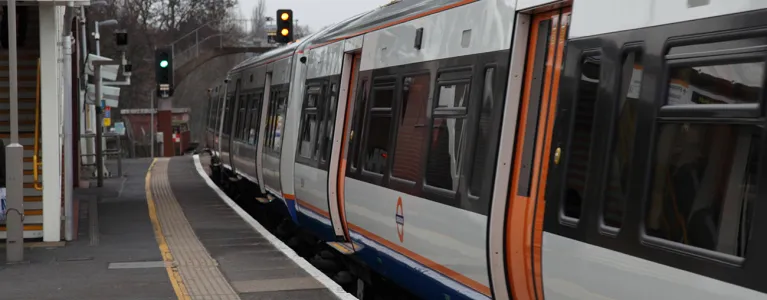
68 per cent in favour of rail devolution
A total of 835 million journeys were made by passengers on rail services in London during 2013/14. This figure is set to grow, with the Greater London Authority (GLA) projecting that demand for rail services in London will increase 80 per cent by 2050.[1]
- Would devolving rail franchises, when they come up for renewal, to Transport for London (TfL) improve our rail services?
- With all the recent talk of renationalising rail services, is regionalisation the future for London?
- How can the Mayor and TfL persuade the Government of the case for reform?
The London Assembly Transport Committee began its Rail Devolution investigation in June 2015. The report ‘Devolving rail services to London: Towards a South London Metro’ released today details its findings.
When the devolution proposition was put to our own survey of London rail passengers, we found that a majority were in favour: 68 per cent of respondents were in favour of devolution to TfL, with 26 per cent preferring their existing operator.[1] Support for TfL was particularly high among users of the South London services that the Mayor has prioritised for devolution.
In our survey, we asked passengers what their top priorities were for improvements on the rail service they use. They were most concerned with price and performance:[2]
- Reduce the cost of tickets (53 per cent of respondents)
Since 2004, passengers have seen their average ticket prices increase by 62 per cent on London and South East rail services, or 16 per cent in real terms (taking inflation into account).[3]
- Reduce delays and cancellations (43 per cent)
Trains have become less reliable in recent years, with one in six trains arriving at least five minutes late.
- Increase the capacity of trains (30 per cent)
The number of passengers arriving in London above the capacity of train services in the morning peak is now almost 22,000.
- Schedule more frequent trains (30 per cent)
A number of rail users in London often have to wait on platforms for several trains to go by, before there is sufficient space for them to board.
Valerie Shawcross CBE AM, Chair of the London Assembly Transport Committee said;
“There is a growing consensus that rail devolution to London is a good idea, including among passengers both inside and outside of London. Our report makes recommendations for the future of the South Eastern and the South Western franchises. We also make suggestions for passenger engagement, infrastructure planning and financial risks.
Another thing we found was that the nightmares at London Bridge station might have been avoided, had a strong partnership existed between Network Rail and TfL. We hope TfL learns from our report and uses our recommendations to make its bids for the upcoming London franchises a success.”
Notes to editors
- Mayor of London, London Infrastructure Plan 2050: A Consultation, 2014. Available at: http://bit.ly/1z4ffLt
- Respondents were asked for their top three priorities. This data includes all survey respondents who travel on National Rail services at least monthly. It does not include responses from passengers travelling mainly on the London Overground or TfL Rail services.
- Office of Rail and Road, Index showing average change in price of rail fares by ticket type, 2015. Available at: http://dataportal.orr.gov.uk/displayreport/html/html/ee32b90d-1f28-4963-88b4-0dff62950b77. Over approximately the same period, London Underground fares have increased about one per cent, and London bus fares about 13 per cent in real terms; see https://tfl.gov.uk/cdn/static/cms/documents/travel-in-london-report-7-data.xlsx
- Survey figures are correct once the “don’t know” responses have been excluded.
- Valerie Shawcross CBE AM, Chair of the Transport Committee, is available for interview – see contact details below.
- Read ‘Devolving Rail Services to London: Towards a South London Metro’ attached.
- A range of providers run rail services in London. ‘National Rail’ is, in effect, a brand name for a number of different heavy rail passenger services mostly run by private companies, which have been awarded franchises by the Department for Transport. There are eight franchises serving the London and South East region.
- London Assembly Transport Committee.
- As well as investigating issues that matter to Londoners, the London Assembly acts as a check and a balance on the Mayor.
For media enquiries, please contact Alison Bell on 020 7983 4228. For out of hours media enquiries, call 020 7983 4000 and ask for the London Assembly duty press officer. Non-media enquiries should be directed to the Public Liaison Unit on 020 7983 4100.